The Importance of the YOS and COS
13
February, 2020
The Big Brothers Big Sisters mentoring model is simple, but effective: by pairing one youth with one caring adult and professionally supporting the growth of that match, our Littles see positive improvements in a number of outcomes related to long-term academic achievement, avoidance of risky behaviors, and social-emotional competence.
We see the success of our programs not only in the stories our matches tell, but also in the national data that we collect from every Little annually. The original Youth Outcomes Survey (YOS), released in 2009, captured important data that agencies have used to bolster match support contacts and engage stakeholders—including funders—in their work. Nationally, we have used YOS data to demonstrate program impact to OJP (resulting in funding increases year-over-year) and steward new relationships with partners like the NFL Foundation and Starbucks. The power of shared measurement across our network also sets us apart from other youth serving organizations. Our ability to report on each child has been invaluable for grantors wishing to see how their funds have had a direct impact in their communities.
We see the success of our programs not only in the stories our matches tell, but also in the national data that we collect from every Little annually

In addition to the important role they play in match support, the YOS and COS are critical to local and national fundraising efforts.
The findings from the 1995 P/PV study established BBBS mentoring as a model program that could affect academic performance, alcohol use, illicit drug use, truancy, and relationships with both peers and parents. Because we know we make a difference in these areas, the YOS contains questions designed to measure progress youth have made from baseline to follow-up in these and other prosocial behaviors. We are able to analyze YOS data annually to see where we as a network are making the greatest impact and where we may want to devote additional resources to training or support for staff, volunteers, parents, and youth.
Beyond the traditional uses in match support and fund raising, YOS data is frequently referenced in recruitment materials, publications, marketing collateral, and communications to stakeholders. We can show potential Bigs how their investment in a child’s life can lead to noticeable improvements in their grades and behavior. We can show current donors the specific ways they are enabling a youth to reach their full potential. We can show youth that we care about their progress.
As we work to redesign the YOS and the complementary Child Outcomes Survey (COS), we encourage you to offer feedback to your task force leaders about usability and usefulness of any proposed changes. Your representatives are tasked with creating tools that are easier for staff to administer to children while still collecting the valid, reliable data our funders and stakeholders have come to expect from us. We look forward to sharing the survey iterations and the final design with you this year.
If you are interested in learning who is representing your affinity group on the agency task force for the YOS and COS Redesign Project, click here. If you have any questions about the redesign project, please click here to submit your question the project team.
